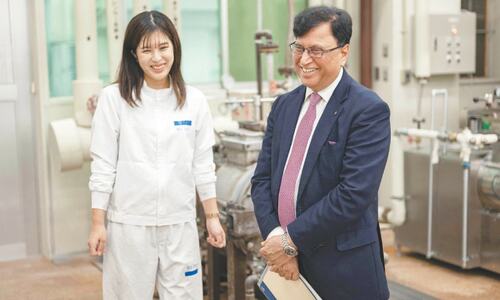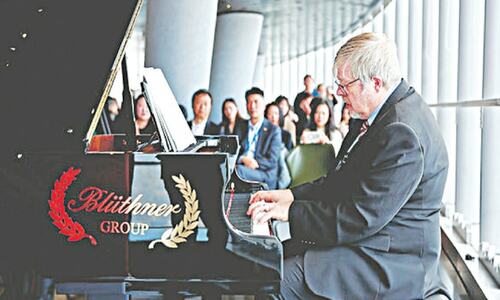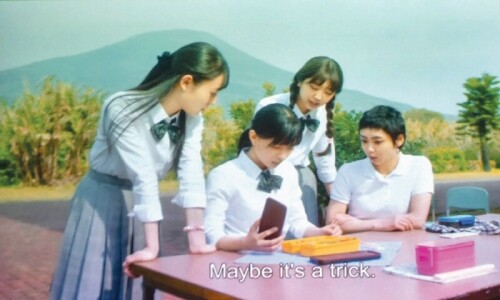SINGAPORE: Nurlidyana, Darwisyah and Azeera are late for English class but the girls do not seem to mind as they giggle and chat about school and their hopes for the future.
Their ambitions vary – Nurlidyana wants to be a doctor, Azeera a teacher and Darwisyah is still undecided.
Yet the 16-year-olds do agree they have gained a good foundation from their school, Madressah Al-Irsyad Al-Islamiah.
Madressahs are Islamic religious schools that in Pakistan, Indonesia and other Muslim states have sometimes been associated with militancy.
But in multi-ethnic Singapore, Madressahs – funded mainly by the minority Muslim community – stick strictly to the basics, focusing not only on religion but on academic studies as well.
Nevertheless, many Muslim parents in the economically developed city-state are reluctant to enrol their children at Madressahs, concerned that the combination of religious and academic studies crowds out broader curricula activities.
“I believe a secular school gives more exposure to other cultures and gives (my son) more opportunities to explore other endeavours” such as sports and art, said Juliana Buono, a mother of two.
“I want him to go to a good school where it’s not all academic, and Madressahs have too many subjects,” she said.
Students at Singapore’s six Madressahs spend six years in primary education and five more in secondary school. They take Islamic studies on top of regular subjects including maths and science, making the school day longer than in regular government-supported schools.
But Al-Irsyad aims to lighten the burden using technology.
The school recently moved into a new building with the latest technology – interactive blackboards that react to touch; polling devices that allow students to enter answers for instant review by teachers; school-wide broadband; and MP3 players that aid in discussions and public speaking.
Still, Nurlidyana and her two friends said they do not plan to continue their studies in Madressahs after finishing secondary school, despite their positive experience at Al-Irsyad.
“I want to explore more, open up, understand the world instead of just the Muslim world,” Nurlidyana said.
The chairman of Al-Irsyad, Razak Mohamed Lazim, sees no problem if students transfer to the government system.
“Yes, some of them do opt to go to national schools and we usually give them our blessing, because we want to make sure (the students) choose the best for what they want to be,” he said.
Razak said his school’s annual intake is more than 200, adding that Singapore’s Madressahs aim to draw the highest quality applicants in order to produce religious scholars.
About 14 per cent of Singapore’s residents are Malay, most of them Muslim.
“We are here not to provide academic education alone to the general public.
We are here to develop potential religious leaders,” Razak said, adding that
Madressahs complement government schools.Al-Irsyad’s approach of combining academic and religious instruction in a high-tech environment has drawn attention from other Madressahs in Asia, he said.
Visitors from southern Thailand, the Philippines and Indonesia have been impressed with Al-Irsyad’s “progressive Madressah model,” he said, adding that Indonesia had opened two Madressahs modelled on Al-Irsyad.
“They have taken lock, stock and barrel our system, the curriculum, and we have also done teacher training to ensure that they know how to run the system that we are running here,” Razak said.
Mariam Sulaiman, a former Al-Irsyad student, said the school’s dual emphasis on academic and religious education enabled her to pursue her dream of entering the research and development industry.
“I need both, not just the academic side but also the spiritual and moral,” said Sulaiman, a biological sciences undergraduate at a local university.
The additional religious subjects had helped her develop moral fortitude, she said, adding: “When you’re in a Madressah, there is a lesser chance for you to mix around with bad influences like drugs and gangs.”
For Nurlidyana, Darwisyah and Azeera, the best lesson of the nine years they have so far spent at Al-Irsyad is one they could not get at a national school.
“The Madressah allows us to learn the guidelines on how to be a good Muslim,” Nurlidyana said as Darwisyah and Azeera nodded in agreement.—AFP















































Dear visitor, the comments section is undergoing an overhaul and will return soon.